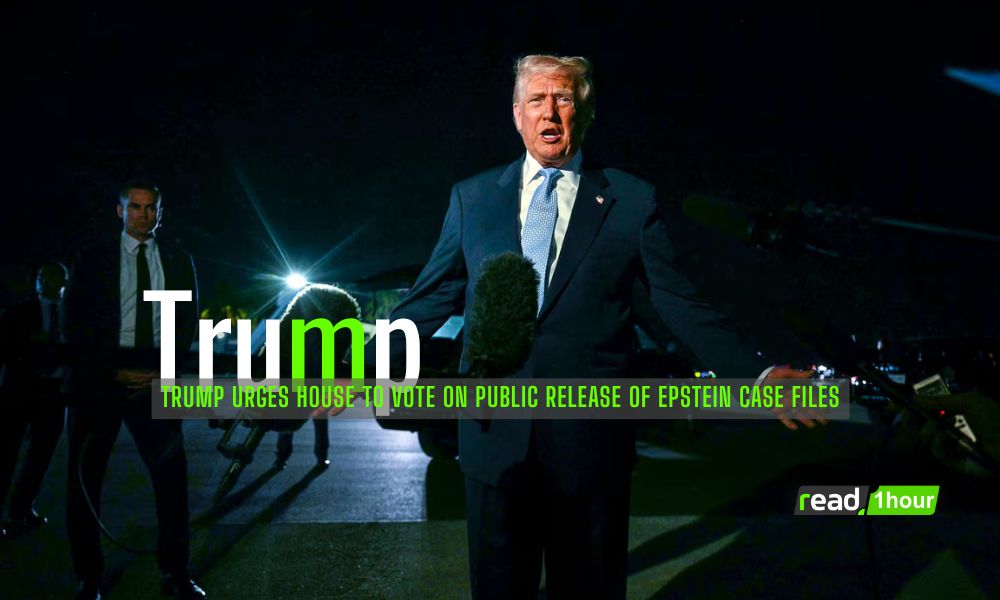Trump Urges House To Vote On Public Release Of Epstein Case Files
read1hour delivers latest news, stock market updates, gadgets, mobile reviews, and trending stories daily.
In a surprising political shift, former President Donald Trump has publicly urged the House of Representatives to vote on releasing the long-awaited Jeffrey Epstein case files. The move has generated immediate nationwide attention, reviving debates around government transparency, high-profile investigations, and the political influence of sensitive documents.

Trump, who previously remained cautious about commenting on the Epstein files, posted the statement during a press briefing, saying, “The American people deserve to know the full truth. The House should vote and release everything.” His remarks mark a notable shift from past positions and have added fresh urgency to ongoing congressional discussions.
The Epstein files contain thousands of pages of court documents, testimony, and investigative materials linked to the late financier’s alleged trafficking network. For years, activists, journalists, and victims’ families have demanded full disclosure, arguing that public access is essential for accountability.
House leaders confirmed that discussions are underway, but no formal vote has been scheduled. Some lawmakers have expressed support for releasing the records, while others caution that doing so could complicate ongoing legal proceedings and expose sensitive information.
Trump’s unexpected statement places additional pressure on Congress, especially at a time when public trust in government institutions remains low. Political analysts say the move may be strategic, aimed at framing Trump as a supporter of transparency while distancing himself from past controversies connected to Epstein’s social circle.
Democratic lawmakers acknowledged that the renewed push may accelerate the timeline for a vote. However, several members emphasized the need for careful review before any release. “Transparency is important, but we must ensure that victims’ privacy and legal processes are respected,” said Rep. Maria Sánchez.
Republican members appear divided. Some support Trump’s call, noting that the public deserves clarity. Others worry about potential political fallout, especially if the documents reveal new connections involving influential figures across both parties.
Legal experts warn that the release of the full Epstein files could have major implications. Depending on the contents, public disclosure may spark new investigations, lawsuits, and political scrutiny. “This case involves powerful individuals, complex networks, and decades of allegations,” said legal analyst Brent Lawson. “A full release could reshape public understanding of the entire scandal.”
Victims’ rights groups welcomed Trump’s comments, saying they hope the pressure leads to long-overdue justice. Many argue that withholding the documents only prolongs the suffering of survivors and protects those who may have been involved.
Still, the debate remains deeply polarized. Some leaders argue that releasing the files without redaction could compromise national security or jeopardize unrelated investigations. Others believe that transparency is necessary to restore public confidence.
As Congress faces growing pressure from both parties and the public, the decision on whether to release the Epstein files is expected to become a major political issue in the coming weeks. Trump’s shift has undeniably changed the momentum, setting the stage for an intense national conversation about accountability, secrecy, and justice.
